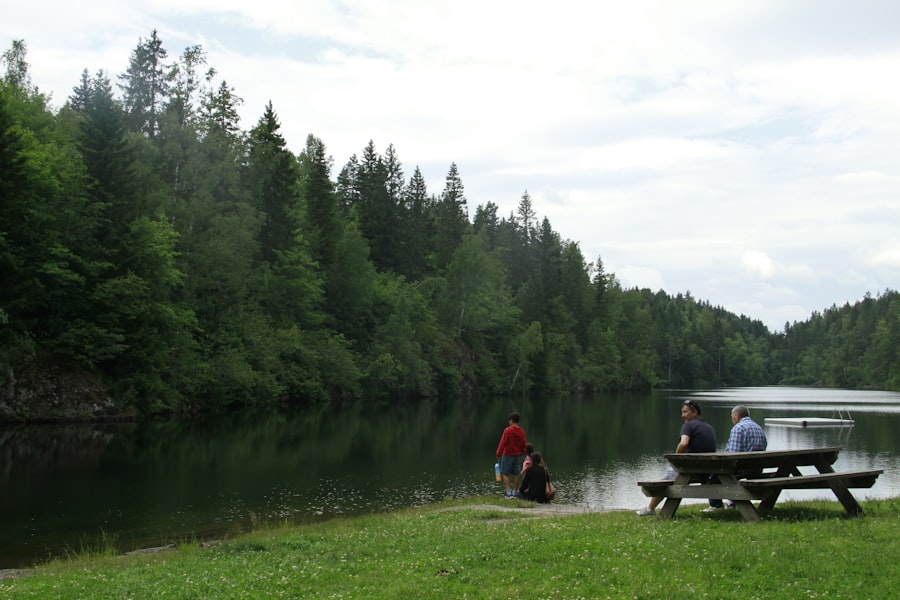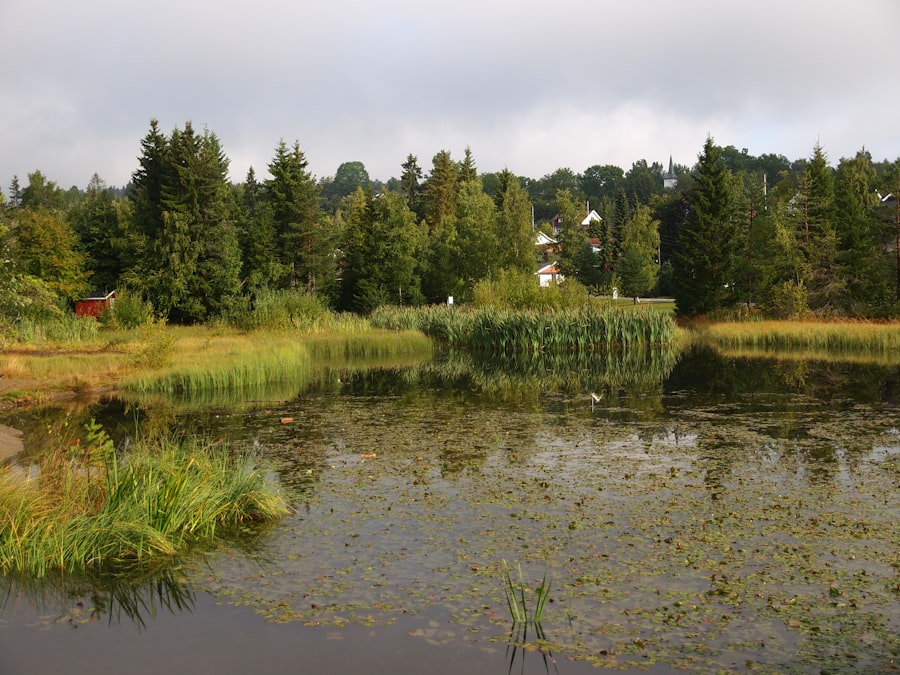International schools play a pivotal role in the lives of expatriate families, particularly in a country like Norway, where the capital city of Oslo is often the focal point for such educational institutions. The Norway Relocation Group understands the unique challenges faced by families relocating to Norway, especially when it comes to finding suitable schooling options for their children. With a wealth of resources and expertise, the group can assist families in navigating the complexities of international education, ensuring a smoother transition into their new environment.
While Oslo boasts a variety of international schools catering to diverse curricula and languages, the same cannot be said for rural areas. This disparity creates a significant challenge for expatriate families who may find themselves living outside the capital. The lack of accessible international education options can lead to feelings of isolation and frustration, as parents strive to provide their children with the best possible educational experience.
The Norway Relocation Group is dedicated to helping families understand their options and make informed decisions about their children’s education, regardless of where they are located in Norway. Plan your relocation with confidence. Book a personal meeting with the Norway Relocation Group today.
Summary
- International schools outside of Oslo provide essential educational options for expatriate families living in rural areas of Norway.
- The lack of international school options in rural areas can have a significant impact on foreign workers, making it difficult for them to settle and integrate into the local community.
- Commuting to Oslo for international school can pose challenges for both students and parents, affecting their work-life balance and overall well-being.
- Local authorities play a crucial role in supporting the establishment and development of international school options in rural areas, contributing to the integration of expatriate families.
- Investment in international education outside of Oslo is necessary to ensure that expatriate families have access to quality educational opportunities and support the diversity and cultural exchange in rural Norway.
Understanding the Importance of International Schools for Expatriate Families
For expatriate families, international schools offer more than just an education; they provide a sense of community and belonging. These institutions are designed to cater to the unique needs of children from diverse cultural backgrounds, fostering an environment where students can thrive academically and socially. The curriculum often includes international perspectives, which not only enriches the learning experience but also prepares students for a globalised world.
Moreover, international schools typically employ teachers from various countries, bringing a wealth of experience and diverse teaching methodologies. This exposure is invaluable for children who may be adjusting to a new culture and language. The Norway Relocation Group can help families identify schools that align with their educational values and preferences, ensuring that their children receive an education that meets their needs while also integrating them into the local community.
The Lack of International School Options in Rural Areas

Despite the advantages that international schools offer, many rural areas in Norway lack such educational facilities. This absence can be particularly challenging for expatriate families who have relocated to these regions for work or lifestyle reasons. The limited availability of international schools means that families often have to make difficult choices regarding their children’s education, sometimes opting for local schools that may not provide the same level of support or understanding of their unique circumstances.
The scarcity of international schools in rural areas can also lead to a sense of isolation for both parents and children. Without access to a community of like-minded families, expatriates may struggle to form connections and support networks. The Norway Relocation Group is committed to addressing these challenges by providing resources and guidance to families seeking educational options outside of Oslo, helping them navigate the complexities of rural schooling.
The Impact of Limited International School Options on Foreign Workers
The lack of international school options in rural areas has far-reaching implications for foreign workers and their families. When parents are unable to find suitable educational facilities for their children, it can lead to increased stress and anxiety, ultimately affecting their work performance and overall well-being. This situation can create a cycle where expatriates feel compelled to relocate back to urban centres like Oslo, undermining the potential benefits of living in rural Norway.
Furthermore, the absence of international schools can hinder the integration of foreign workers into the local community. When children attend local schools that may not fully understand or accommodate their cultural backgrounds, it can lead to feelings of alienation and disconnection. The Norway Relocation Group recognises these challenges and strives to support families in finding solutions that allow them to thrive both personally and professionally in their new environment.
The Challenges of Commuting to Oslo for International School
For families living in rural areas but wishing to access international education in Oslo, commuting presents its own set of challenges. The distance between rural communities and the capital can make daily travel impractical, leading many families to consider relocating entirely. However, this decision is not always feasible due to work commitments or housing availability in Oslo.
Commuting also places additional strain on family dynamics, as parents may need to juggle work schedules with school drop-offs and pick-ups. This can result in long days for both parents and children, leaving little time for family bonding or extracurricular activities. The Norway Relocation Group understands these complexities and offers tailored advice on managing logistics and finding balance during this transitional period.
The Role of Local Authorities in Supporting International School Options

Local authorities play a crucial role in addressing the educational needs of expatriate families living in rural areas. By recognising the importance of international education, local governments can take proactive steps to support the establishment of international schools or partnerships with existing institutions. This could involve providing funding, resources, or incentives for educators willing to set up international programmes in underserved regions.
Moreover, local authorities can facilitate community engagement by fostering dialogue between expatriate families and local residents. By promoting cultural exchange and understanding, they can help create an inclusive environment that benefits everyone involved. The Norway Relocation Group advocates for increased collaboration between local authorities and expatriate communities to ensure that educational needs are met effectively.
Exploring Alternative Education Options for Expatriate Families
In light of the limited availability of international schools in rural areas, expatriate families may need to explore alternative education options. This could include bilingual schools, private tutoring, or homeschooling arrangements that cater specifically to their children’s needs. While these alternatives may not provide the same level of international exposure as traditional international schools, they can still offer valuable educational experiences.
The Norway Relocation Group can assist families in identifying suitable alternative education options that align with their values and expectations. By providing information on local resources and support networks, they empower families to make informed decisions about their children’s education while navigating the complexities of life in a new country.
The Need for Investment in International Education Outside of Oslo
To address the educational disparities faced by expatriate families in rural areas, there is a pressing need for investment in international education outside of Oslo. This investment could take various forms, including funding for new international schools, training programmes for teachers, or initiatives aimed at fostering cultural exchange within local communities. By prioritising international education in rural areas, stakeholders can help create a more inclusive environment that benefits both expatriates and local residents alike.
The Norway Relocation Group advocates for increased awareness and action on this front, recognising that a diverse educational landscape is essential for fostering understanding and collaboration among different cultures.
Overcoming Barriers to Establishing International Schools in Rural Areas
Establishing international schools in rural areas is not without its challenges. Factors such as funding constraints, regulatory hurdles, and a lack of qualified educators can impede progress. However, by working collaboratively with local authorities, educational organisations, and expatriate communities, it is possible to overcome these barriers.
The Norway Relocation Group plays a vital role in facilitating these conversations and advocating for change. By bringing together stakeholders from various sectors, they can help identify solutions that address the unique needs of expatriate families while also benefiting the broader community.
The Benefits of Diversity and Cultural Exchange in International Schools
International schools are not just about providing an education; they are also about fostering diversity and cultural exchange. Students from different backgrounds come together to learn from one another, sharing their unique perspectives and experiences. This exposure is invaluable in preparing children for an increasingly interconnected world.
Moreover, international schools often celebrate cultural events and traditions from around the globe, creating an enriching environment that promotes understanding and respect among students. The Norway Relocation Group emphasises the importance of these experiences in shaping well-rounded individuals who are equipped to navigate diverse environments throughout their lives.
The Future of International Education in Rural Norway
The future of international education in rural Norway hinges on collaboration between expatriate communities, local authorities, and educational organisations. By recognising the unique challenges faced by expatriate families and investing in solutions that promote inclusivity and diversity, it is possible to create a more equitable educational landscape across the country. As part of this vision, the Norway Relocation Group remains committed to supporting families as they navigate their educational options in Norway.
They also highlight the importance of language acquisition through initiatives like the Norwegian courses at the NLS Norwegian Language School in Oslo. These courses not only equip expatriates with essential language skills but also foster deeper connections with Norwegian culture—an invaluable asset for any family looking to thrive in their new home. Through these combined efforts, we can work towards a brighter future for international education throughout rural Norway.

